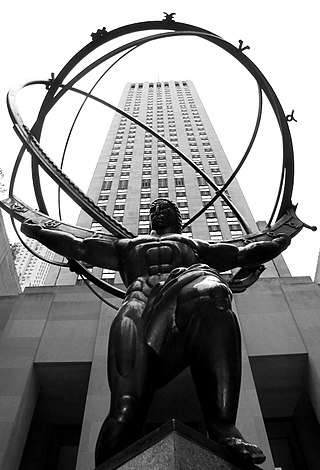Andrew Bernstein
| Andrew Bernstein | |
|---|---|
| Born | 1949 |
| Nationality | American |
| Alma mater | City University of New York (PhD) |
| School | Objectivism |
| Website | AndrewBernstein.net |
| Objectivist movement |
|---|
 |
|
Theorists |
|
Andrew Bernstein (born 1949) is an American philosopher. He is a proponent of Objectivism, the philosophy of Ayn Rand, and the author of several books, both fiction and non-fiction.
Education and career
He is the author of The Capitalist Manifesto: The Historic, Economic, and Philosophic Case for Laissez-Faire,[1] Capitalism Unbound: The Incontestable Case for Individual Rights[2] and Objectivism in One Lesson,[3] as well as two novels, Heart of a Pagan and A Dearth of Eagles.[4] He also authored the CliffsNotes for Ayn Rand's Atlas Shrugged, The Fountainhead, and Anthem, and has contributed essays to volumes such as Essays on Ayn Rand's Anthem[5] and Essays on Ayn Rand's We the Living.[6] His op-eds have appeared in publications such as the San Francisco Chronicle, the Chicago Tribune, The Baltimore Sun, The Atlanta Constitution, The Washington Times, The Los Angeles Daily News, and the Houston Chronicle. He is affiliated with the Ayn Rand Institute and the New York Heroes Society, an Ayn Rand advocacy organization, and is known for his public defense of Objectivism, particularly its support for laissez-faire capitalism.[7]
Bibliography
Non-fiction
- The Capitalist Manifesto: The Historic, Economic, and Philosophic Case for Laissez-Faire, 2005
- Objectivism in One Lesson: An Introduction to the Philosophy of Ayn Rand, 2008
- Capitalism Unbound: The Incontestable Case for Individual Rights, 2010
- Capitalist Solutions: A Philosophy of American Moral Dilemmas, 2011
Fiction
- Heart of a Pagan: The Story of Swoop, 2002
- A Dearth of Eagles, 2017
References
- ↑ University Press of America, 2005
- ↑ University Press of America, 2010
- ↑ Hamilton Books, 2009
- ↑ The Paper Tiger, 2002
- ↑ Mayhew, Robert, ed., Lexington Press, 2005, "Anthem and Collectivist Regression into Primitivism," pp. 299–305.
- ↑ Mayhew, Robert, ed., Lexington Press, 2004, "The Integration of Plot and Theme in We the Living," pp. 279–285.
- ↑ "New York Heroes Society". Retrieved 2010-12-11.
External links
| Wikiquote has quotations related to: Andrew Bernstein |